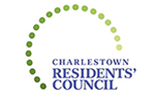Last Updated on June 15, 2023

I never really truly in my heart of hearts believed that I would go blind from cataract surgery. I am too much of an optimist. However, I am also a control freak, and the prospect of submitting to someone hovering over my semiconscious head while wielding a knife was terrifying to contemplate. I wouldn’t be in charge, so I had to expect the worst outcome!
Never mind that the doctor had done this successfully a gazillion times or that a quadri-gazillion people have had their cataracts successfully removed. Those statistics were not applicable to me. I was going to be the unfortunate exception.
I like to be prepared (a common tendency of control freaks). I don’t like to be caught, as they say, with my panties down. If a tragedy like losing my eyesight was going to befall me, I wanted to be ready for it. I decided that my transition from full sight to one-eyed vision would be seamless, an act of brave resignation. I would accept it with grace and dignity. No hysteria or self-pity here. So I began to imagine going about my daily activities without depth perception. This was easy to practice by simply closing one eye. Without three-dimensional vision, however, I consistently undershot all distances – reaching for a door knob, gauging the step up to a curb, positioning an empty glass under a running faucet. The adjustment was not going to be easy. (No, I did not test myself driving a car or chopping carrots.)
Convinced that I would face total blindness following a second cataract surgery, I advanced my preparation even further. I spent every available minute reading and marveling over the miracle of reading. I was about to lose this lifelong love affair with written words, so I read voraciously and with a sense of urgency. As part of my preparedness program, I seriously wondered if it is possible for people of a certain age to learn Braille.
During those months prior to cataract surgery, my vision grew increasingly blurry, and I found myself having to re-read many words that just didn’t sound right. For example, I read a quote from some political candidate who said, “You have my wood on that.” Huh? My what?? My wood??? Of course, it was “my word,” but I had misread it. I recall other examples. A well-known sports figure had challenged his opponent to a duet. A duet? Really? I didn’t know they played piano!? Oops…it said “duel.” Also…a man was arrested for chasing beers in Yosemite Park. Beers? Was this one of those extreme outdoor games? No. It was “bears.” He was chasing bears.
Misreading words became more frequent, especially at bedtime when my eyes were tired and could not stay focused. One night, fatigued by the persistently blurry page, I closed both my book and my eyes and amused myself by mentally writing little scenarios with deliberate, built-in malapropisms. Misreading had inspired mis-writing! For example, a woman is sitting in a dentist’s chair. Something painful occurs and she involuntarily lets out a little stream (scream). In the same imaginary dentist’s office, a man’s mouth is totally numb from a big injection of local anesthetic, and he is worrying about having to wear an adult bob (bib) to catch his drool. In another scene, a boy surprises his girlfriend with a delicious tweak (treat): chocolate covered buts (nuts).
Chuckling to myself, I was on a roll. In my favorite mis-written scenario, a guy goes to his church’s potluck picnic with a basket of deep-fried children (chicken). These were fun. Occasionally, I laughed out loud. (I am sometimes my own best audience.)
Of course, I did not go blind from my cataract surgeries. They were very successful, and I am extremely grateful for my improved vision. I worried excessively and unnecessarily. There’s a lesson for me somewhere in here.
Julie Helms
